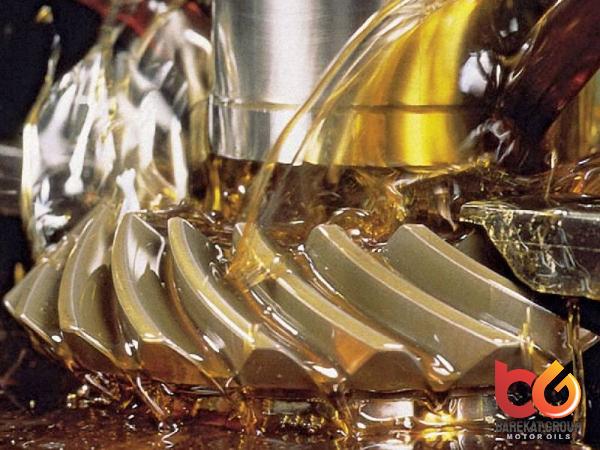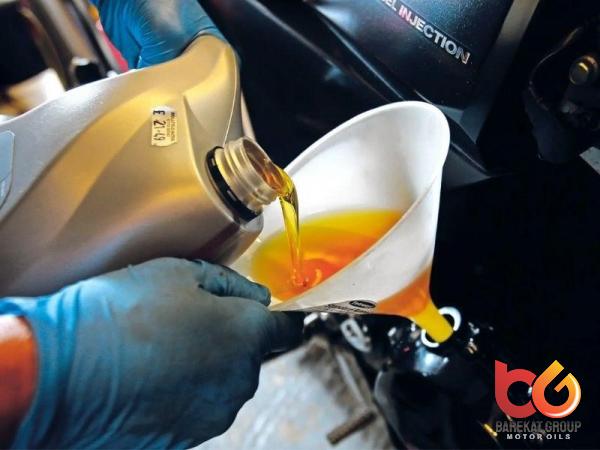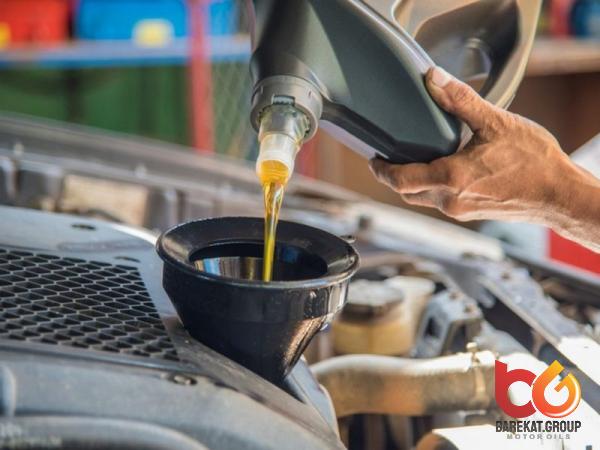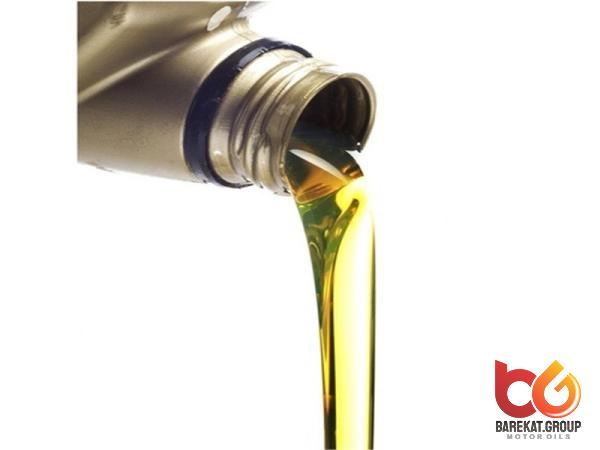The Essential Guide to V8 Engine Oil: Benefits, Types, and Maintenance Introduction: V8 engines are renowned for their power, performance, and distinctive rumble. These engines are widely used in high-performance vehicles, muscle cars, and trucks. To ensure optimal performance and longevity, it is crucial to use the right engine oil. In this guide, we explore the importance of V8 engine oil, its types, and essential maintenance tips. 1. Understanding V8 Engine Oil: Engine oil serves as a lubricant, cooling agent, and cleaner for the engine components. For V8 engines, the oil requirements are unique due to the higher horsepower and torque output. V8 engines typically have larger oil capacities and higher operating temperatures, demanding oil that can withstand high stress. 2. Benefits of High-Quality V8 Engine Oil: 2.1. Lubrication: V8 engines have numerous moving parts that require proper lubrication to reduce friction and wear. High-quality engine oil forms a protective barrier between the metal surfaces, allowing smooth movement and preventing damage caused by friction. 2.2. Cooling: V8 engines generate a significant amount of heat during operation. Engine oil aids in dissipating heat, ensuring the engine stays within the optimal temperature range. Cooling properties are particularly vital for high-performance V8 engines that endure intense driving conditions. 2.3. Cleaning: Engine oil acts as a detergent, accumulating impurities and contaminants, such as dirt, dust, and metal particles. Regular oil changes remove these harmful elements, preventing engine components from becoming clogged or damaged. 3. Types of V8 Engine Oil: Choosing the right type of engine oil is crucial for V8 engines to maintain their performance and longevity. Several factors need to be considered, including viscosity, additives, and the engine’s specific requirements. Here are the main types of engine oil for V8 engines: 3.1. Conventional Oil: Conventional oil is a traditional, mineral-based lubricant. While it provides adequate protection for most V8 engines, it tends to break down and lose its effectiveness at higher temperatures. 3.2. Synthetic Oil: Synthetic oil is specially formulated through chemical processes. It offers superior protection, durability, and performance compared to conventional oil. Synthetic oil resists breakdown at high temperatures, provides better lubrication, and enhances fuel economy.
Engine oil
 For high-performance V8 engines, synthetic oil is often recommended. 3.3. Synthetic Blend Oil: As the name suggests, synthetic blend oil combines both conventional and synthetic oils. It offers a balance between performance and cost-effectiveness. Synthetic blends can be a good choice for V8 engines that require occasional high-stress performance but do not demand constant high-performance situations. 4. Selecting the Right V8 Engine Oil: Choosing the correct V8 engine oil can be a daunting task due to the numerous options available in the market. There are a few factors to consider when selecting engine oil for your V8 engine: 4.1. Manufacturer Recommendations: Always refer to the vehicle manufacturer’s recommendations found in the owner’s manual. These guidelines specify the viscosity range and other essential requirements for the engine. 4.2. Viscosity: Viscosity is a measure of an oil’s thickness and its ability to flow at different temperatures. V8 engines have specific viscosity recommendations depending on the climate and driving conditions. Low viscosity oils (e.g., 5W-20) offer better cold-start performance, while higher viscosity oils (e.g., 10W-40) provide more stability at high temperatures. 4.3. API Certification: The American Petroleum Institute (API) certifies engine oils to ensure they meet the necessary performance standards. Look for the API certification on the engine oil container to ensure it meets the required standards for your V8 engine. 4.4. Additive Packages: Different engine oils offer specific additive packages that provide additional benefits, such as extended engine life, improved fuel economy, or reduced engine wear. Understand the additives and their benefits to select the most appropriate oil for your V8 engine. 5. V8 Engine Oil Maintenance Tips: To optimize the performance and longevity of your V8 engine, proper maintenance is essential. Here are some critical maintenance tips to consider: 5.1. Regular Oil Changes: Changing the engine oil at regular intervals is vital. Follow the manufacturer’s recommended oil change schedule to prevent engine damage due to oil degradation and contamination. 5.2. Oil Filter Replacement: Along with oil changes, it is crucial to replace the oil filter to maintain clean oil circulation. A clogged or worn-out oil filter can restrict flow and lead to inadequate lubrication.
For high-performance V8 engines, synthetic oil is often recommended. 3.3. Synthetic Blend Oil: As the name suggests, synthetic blend oil combines both conventional and synthetic oils. It offers a balance between performance and cost-effectiveness. Synthetic blends can be a good choice for V8 engines that require occasional high-stress performance but do not demand constant high-performance situations. 4. Selecting the Right V8 Engine Oil: Choosing the correct V8 engine oil can be a daunting task due to the numerous options available in the market. There are a few factors to consider when selecting engine oil for your V8 engine: 4.1. Manufacturer Recommendations: Always refer to the vehicle manufacturer’s recommendations found in the owner’s manual. These guidelines specify the viscosity range and other essential requirements for the engine. 4.2. Viscosity: Viscosity is a measure of an oil’s thickness and its ability to flow at different temperatures. V8 engines have specific viscosity recommendations depending on the climate and driving conditions. Low viscosity oils (e.g., 5W-20) offer better cold-start performance, while higher viscosity oils (e.g., 10W-40) provide more stability at high temperatures. 4.3. API Certification: The American Petroleum Institute (API) certifies engine oils to ensure they meet the necessary performance standards. Look for the API certification on the engine oil container to ensure it meets the required standards for your V8 engine. 4.4. Additive Packages: Different engine oils offer specific additive packages that provide additional benefits, such as extended engine life, improved fuel economy, or reduced engine wear. Understand the additives and their benefits to select the most appropriate oil for your V8 engine. 5. V8 Engine Oil Maintenance Tips: To optimize the performance and longevity of your V8 engine, proper maintenance is essential. Here are some critical maintenance tips to consider: 5.1. Regular Oil Changes: Changing the engine oil at regular intervals is vital. Follow the manufacturer’s recommended oil change schedule to prevent engine damage due to oil degradation and contamination. 5.2. Oil Filter Replacement: Along with oil changes, it is crucial to replace the oil filter to maintain clean oil circulation. A clogged or worn-out oil filter can restrict flow and lead to inadequate lubrication.
Specifications of Engine oil
 5.3. Monitoring Oil Levels: Regularly check the oil level using the dipstick and top up as necessary. Low oil levels can cause insufficient lubrication and potential engine damage. 5.4. Engine Oil Analysis: Periodically conduct oil analysis to assess the condition, wear patterns, and contaminants present in the oil. This can help identify potential engine issues and allow for timely preventive measures. Conclusion: Selecting the right engine oil and maintaining it properly is crucial for the optimal performance and longevity of V8 engines. By understanding the benefits and types of engine oil, as well as following essential maintenance tips, V8 engine owners can ensure smooth operation and minimize the risk of costly repairs. Stay informed, follow manufacturer recommendations, and prioritize regular oil changes to keep your V8 engine performing at its peak.Title: The Essential Guide to V8 Engine Oil: Benefits, Types, and Maintenance 1. The Importance of Choosing the Right V8 Engine Oil Selecting the most suitable engine oil for a V8 engine is crucial to ensure optimal performance, protect engine components, and extend the engine’s lifespan. V8 engines are known for their power and torque output, which puts additional stress on the engine and requires oil that can withstand high temperatures and pressures. Using the wrong oil or neglecting proper maintenance can lead to reduced performance, increased wear and tear, and costly repairs. 2. Understanding the Benefits of High-Quality V8 Engine Oil High-quality engine oil offers several key benefits for V8 engines: 2.1. Enhanced Lubrication: V8 engines have numerous moving parts that require proper lubrication to minimize friction and wear. High-quality engine oil forms a protective barrier between metal surfaces, allowing for smooth movement and reducing the risk of damage caused by friction. 2.2. Improved Cooling: V8 engines generate substantial heat during operation. Engine oil functions as a coolant by absorbing and dissipating heat, ensuring the engine maintains a consistent, optimal temperature. Adequate cooling properties are particularly crucial for high-performance V8 engines exposed to intense driving conditions or towing heavy loads. 2.3. Effective Cleaning: Engine oil acts as a detergent, accumulating impurities, such as dirt, dust, and metal particles. Regular oil changes remove these contaminants, preventing them from clogging the engine’s vital components and causing wear or damage. Clean oil also helps maintain proper functioning and efficiency of engine systems.
5.3. Monitoring Oil Levels: Regularly check the oil level using the dipstick and top up as necessary. Low oil levels can cause insufficient lubrication and potential engine damage. 5.4. Engine Oil Analysis: Periodically conduct oil analysis to assess the condition, wear patterns, and contaminants present in the oil. This can help identify potential engine issues and allow for timely preventive measures. Conclusion: Selecting the right engine oil and maintaining it properly is crucial for the optimal performance and longevity of V8 engines. By understanding the benefits and types of engine oil, as well as following essential maintenance tips, V8 engine owners can ensure smooth operation and minimize the risk of costly repairs. Stay informed, follow manufacturer recommendations, and prioritize regular oil changes to keep your V8 engine performing at its peak.Title: The Essential Guide to V8 Engine Oil: Benefits, Types, and Maintenance 1. The Importance of Choosing the Right V8 Engine Oil Selecting the most suitable engine oil for a V8 engine is crucial to ensure optimal performance, protect engine components, and extend the engine’s lifespan. V8 engines are known for their power and torque output, which puts additional stress on the engine and requires oil that can withstand high temperatures and pressures. Using the wrong oil or neglecting proper maintenance can lead to reduced performance, increased wear and tear, and costly repairs. 2. Understanding the Benefits of High-Quality V8 Engine Oil High-quality engine oil offers several key benefits for V8 engines: 2.1. Enhanced Lubrication: V8 engines have numerous moving parts that require proper lubrication to minimize friction and wear. High-quality engine oil forms a protective barrier between metal surfaces, allowing for smooth movement and reducing the risk of damage caused by friction. 2.2. Improved Cooling: V8 engines generate substantial heat during operation. Engine oil functions as a coolant by absorbing and dissipating heat, ensuring the engine maintains a consistent, optimal temperature. Adequate cooling properties are particularly crucial for high-performance V8 engines exposed to intense driving conditions or towing heavy loads. 2.3. Effective Cleaning: Engine oil acts as a detergent, accumulating impurities, such as dirt, dust, and metal particles. Regular oil changes remove these contaminants, preventing them from clogging the engine’s vital components and causing wear or damage. Clean oil also helps maintain proper functioning and efficiency of engine systems.
Buy Engine oil
 3. Exploring Different Types of V8 Engine Oil There are several types of engine oil available for V8 engines, each with its advantages and specifications: 3.1. Conventional Oil: Conventional oil, also known as mineral-based oil, is derived from crude oil. It provides adequate protection for most V8 engines, although it tends to break down and lose its effectiveness at higher temperatures. Conventional oil is generally less expensive than synthetic alternatives. 3.2. Synthetic Oil: Synthetic oil is chemically engineered to provide superior performance and protection compared to conventional oil. Synthetic oils have better high-temperature stability, reducing the risk of breakdown and maintaining their lubricating properties for a longer duration. They offer improved engine efficiency, enhanced fuel economy, and extended oil change intervals. 3.3. Synthetic Blend Oil: Synthetic blend oil, as the name suggests, combines conventional and synthetic oils. This type of oil provides a balance between performance and cost-effectiveness. It can be an ideal choice for V8 engines that require occasional high-stress performance, but don’t operate under constant demanding conditions. 4. Selecting the Ideal V8 Engine Oil Choosing the right engine oil for a V8 engine requires considering several factors: 4.1. Manufacturer Recommendations: The vehicle manufacturer’s recommendations, outlined in the owner’s manual, should be the primary guide for selecting the ideal engine oil. The manual specifies the recommended viscosity range and oil type that best suits the engine’s requirements. 4.2. Viscosity Ratings: Viscosity refers to an oil’s thickness and its ability to flow at different temperatures. Choosing the appropriate viscosity is crucial to ensure proper oil flow and lubrication. V8 engines have specific viscosity recommendations based on their design, climate conditions, and anticipated usage. Common viscosity ratings for V8 engines include 5W-20, 5W-30, and 10W-40.
3. Exploring Different Types of V8 Engine Oil There are several types of engine oil available for V8 engines, each with its advantages and specifications: 3.1. Conventional Oil: Conventional oil, also known as mineral-based oil, is derived from crude oil. It provides adequate protection for most V8 engines, although it tends to break down and lose its effectiveness at higher temperatures. Conventional oil is generally less expensive than synthetic alternatives. 3.2. Synthetic Oil: Synthetic oil is chemically engineered to provide superior performance and protection compared to conventional oil. Synthetic oils have better high-temperature stability, reducing the risk of breakdown and maintaining their lubricating properties for a longer duration. They offer improved engine efficiency, enhanced fuel economy, and extended oil change intervals. 3.3. Synthetic Blend Oil: Synthetic blend oil, as the name suggests, combines conventional and synthetic oils. This type of oil provides a balance between performance and cost-effectiveness. It can be an ideal choice for V8 engines that require occasional high-stress performance, but don’t operate under constant demanding conditions. 4. Selecting the Ideal V8 Engine Oil Choosing the right engine oil for a V8 engine requires considering several factors: 4.1. Manufacturer Recommendations: The vehicle manufacturer’s recommendations, outlined in the owner’s manual, should be the primary guide for selecting the ideal engine oil. The manual specifies the recommended viscosity range and oil type that best suits the engine’s requirements. 4.2. Viscosity Ratings: Viscosity refers to an oil’s thickness and its ability to flow at different temperatures. Choosing the appropriate viscosity is crucial to ensure proper oil flow and lubrication. V8 engines have specific viscosity recommendations based on their design, climate conditions, and anticipated usage. Common viscosity ratings for V8 engines include 5W-20, 5W-30, and 10W-40.
Engine oil + buy and sell
 4.3. API Certifications: The American Petroleum Institute (API) certifies engine oils to ensure they meet specified performance standards. Look for the API certification mark on the engine oil container to ensure it aligns with the necessary requirements for your V8 engine. 4.4. Additives and Special Formulations: Different engine oils offer distinctive additive packages or special formulations that provide additional benefits. These could include extended engine life, improved fuel economy, reduced engine wear, and enhanced protection against deposits or sludge formation. Understanding the specific additives and their advantages can help in selecting the most suitable oil for your V8 engine. 5. Essential Maintenance Tips for V8 Engine Oil Proper maintenance is essential for the optimum performance and longevity of V8 engines: 5.1. Regular Oil Changes: Regularly changing the engine oil is crucial to prevent oil degradation and contamination. Follow the manufacturer’s recommended oil change intervals to ensure clean oil circulates throughout the engine, maintaining optimum lubrication and protection. 5.2. Oil Filter Replacement: Along with oil changes, it’s essential to replace the oil filter. The oil filter traps contaminants and impurities, preventing them from circulating within the engine. A clogged or worn-out oil filter can restrict oil flow and reduce the effectiveness of lubrication, potentially causing engine damage. 5.3. Monitoring Oil Levels: Regularly check the oil level using the dipstick and top up as needed. Low oil levels can lead to inadequate lubrication, potentially resulting in engine damage. It is crucial to maintain the oil at the optimal level to ensure proper functioning and protection of engine components. 5.4. Engine Oil Analysis: Periodic oil analysis can provide valuable insights into the condition, wear patterns, and contaminants in the engine oil. This analysis helps identify potential engine issues, such as excessive wear or the presence of harmful contaminants, allowing for timely preventive measures and engine maintenance. Conclusion: Choosing the right V8 engine oil and maintaining it properly is vital to ensure optimal performance, protect engine components, and extend the engine’s lifespan. By understanding the benefits and types of engine oil, as well as following essential maintenance tips, V8 engine owners can enjoy smooth operation and minimize the risk of costly repairs. Adhering to manufacturer recommendations, selecting the appropriate oil viscosity, and prioritizing regular oil changes are paramount to keeping V8 engines running at their best.
4.3. API Certifications: The American Petroleum Institute (API) certifies engine oils to ensure they meet specified performance standards. Look for the API certification mark on the engine oil container to ensure it aligns with the necessary requirements for your V8 engine. 4.4. Additives and Special Formulations: Different engine oils offer distinctive additive packages or special formulations that provide additional benefits. These could include extended engine life, improved fuel economy, reduced engine wear, and enhanced protection against deposits or sludge formation. Understanding the specific additives and their advantages can help in selecting the most suitable oil for your V8 engine. 5. Essential Maintenance Tips for V8 Engine Oil Proper maintenance is essential for the optimum performance and longevity of V8 engines: 5.1. Regular Oil Changes: Regularly changing the engine oil is crucial to prevent oil degradation and contamination. Follow the manufacturer’s recommended oil change intervals to ensure clean oil circulates throughout the engine, maintaining optimum lubrication and protection. 5.2. Oil Filter Replacement: Along with oil changes, it’s essential to replace the oil filter. The oil filter traps contaminants and impurities, preventing them from circulating within the engine. A clogged or worn-out oil filter can restrict oil flow and reduce the effectiveness of lubrication, potentially causing engine damage. 5.3. Monitoring Oil Levels: Regularly check the oil level using the dipstick and top up as needed. Low oil levels can lead to inadequate lubrication, potentially resulting in engine damage. It is crucial to maintain the oil at the optimal level to ensure proper functioning and protection of engine components. 5.4. Engine Oil Analysis: Periodic oil analysis can provide valuable insights into the condition, wear patterns, and contaminants in the engine oil. This analysis helps identify potential engine issues, such as excessive wear or the presence of harmful contaminants, allowing for timely preventive measures and engine maintenance. Conclusion: Choosing the right V8 engine oil and maintaining it properly is vital to ensure optimal performance, protect engine components, and extend the engine’s lifespan. By understanding the benefits and types of engine oil, as well as following essential maintenance tips, V8 engine owners can enjoy smooth operation and minimize the risk of costly repairs. Adhering to manufacturer recommendations, selecting the appropriate oil viscosity, and prioritizing regular oil changes are paramount to keeping V8 engines running at their best.
Your comment submitted.